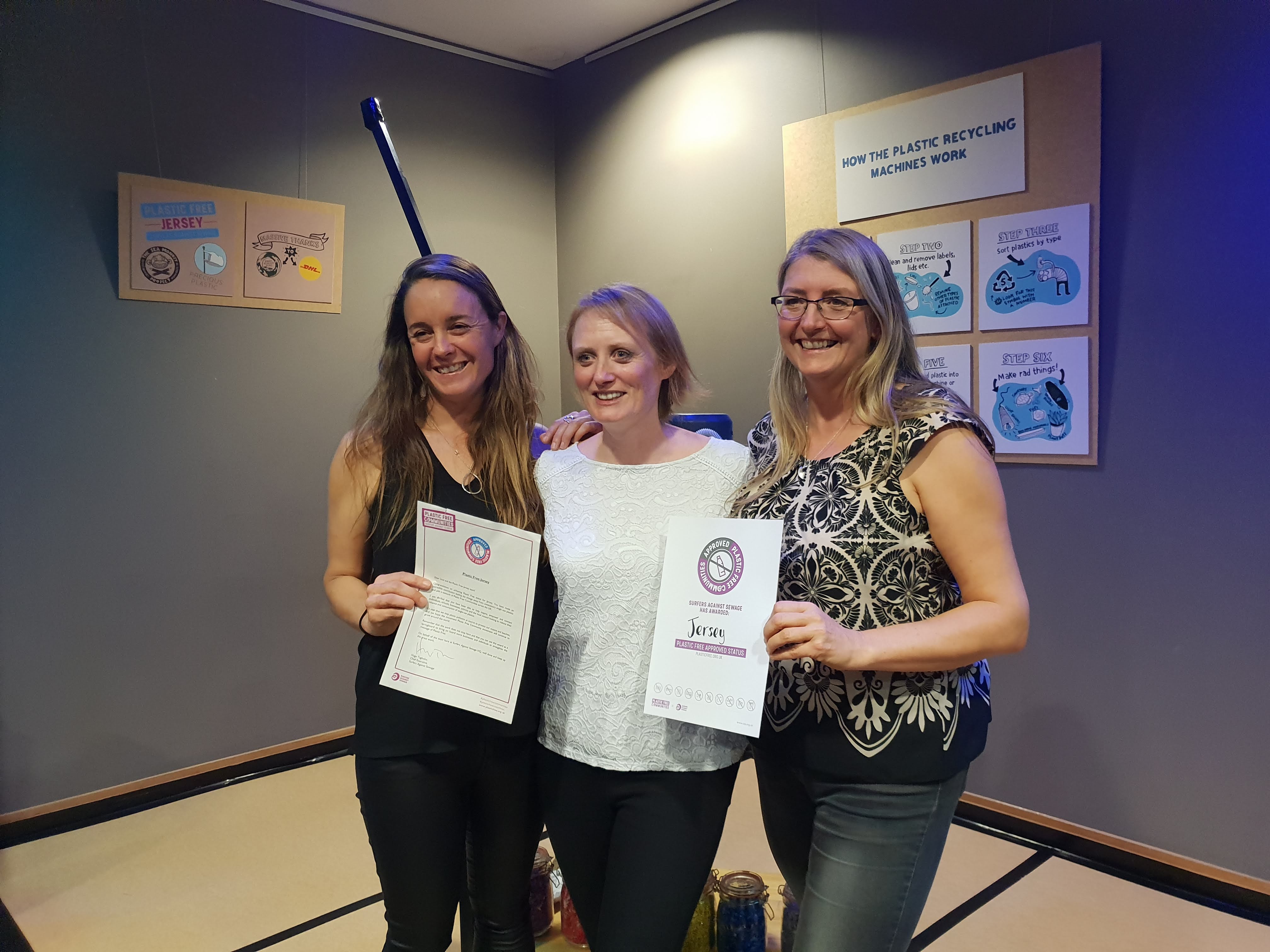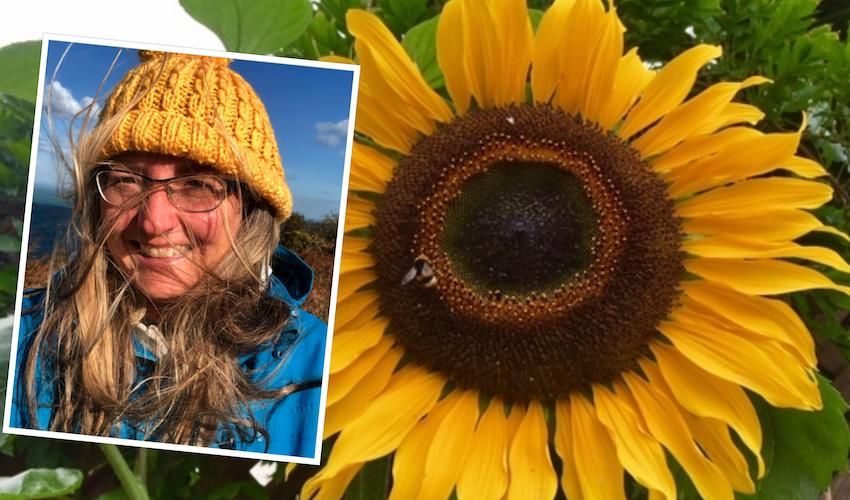Last year, Sheena joined an "inspiring group of people" to launch the Plastic Free Jersey campaign.
"The uptake and interest by hundreds of businesses and individuals was amazing," Sheena recalled. So much so, that in December the island received formal recognition of its efforts to scrap single-use plastics in the form of 'Plastic Free Community' status.

Pictured: Sheena Brockie (right) with Linzi Hawkin and Jane Burns holding Jersey's 'Plastic Free Community' accreditation.
But Sheena told Express this is "just the start", explaining...
"2019 promises to be just as exciting as we launch Plastic Free Bays with the Ports of Jersey and carry out citizen science and education programs using our Precious Plastics Machines, funded by the Ecology Fund and our sand-sifting Nurdle Trommel, funded by Jersey Electricity.
"As we look forward to 2019, the main things that fill my creative mind are island biodiversty, sustainability and climate change. Different words and different ways of taking action to show that we care about our Living Planet. Each is intricately interwoven and interlinked, and by focusing on one part we intrinsically help make a difference in the others. The global news is alarming, but the reality is that together we really can make a difference.

Pictured: Planting local wildflowers, bulbs and shrubs will help bees, moths and butterflies to thrive.
"Whilst 2018 saw the passing of the last male northern white rhino in Kenya, closer to home we are also facing a mass extinction event of our own - our insects. The knock on effect of pesticides use, changing habitats, pollution and climate change are taking their toll on our insect populations, from the microbiology in our soils to bugs, beetles, butterflies and bees. Let 2019 be the year that we reverse that trend!
"It’s easy to do - because the best thing to do is nothing! Don’t pick up the dead leaves, don’t pick the weeds, don’t cut the grass (or a patch of it a least!) and definitely don’t spray pesticides - just sit back and watch what nature does when left to her own devices. Nature is amazing, but not necessarily ‘tidy’.
"To actively encourage pollinators such as bees, moths, butterflies and hoverflies you can plant local wildflowers, bulbs and shrubs specifically to tempt them in to your garden. Try crocus or snowdrops for the spring; lavender and herbs for the summer and Michaelmas daisies for the autumn. For more ideas, check the list of pollinator-friendly perennials for gardens the Pollinator Project Guernsey compiled.

Pictured: Perched above Anne Port, Anneville Farm boasts 48 acres where only seasonal vegetables are allowed to grow.
"Another way of supporting our local biodiversity is by buying from local farmers who do not use herbicides and pesticides on their land - not only will the resulting food be healthier for you, but by managing the land in this way a host of beneficial microbiology and insects can be supported.
"Buying local also means that you are supporting your local economy, creating food security, reducing the carbon footprint/food miles of the food that you eat and making your personal way of life sustainable in the long term."


Comments
Comments on this story express the views of the commentator only, not Bailiwick Publishing. We are unable to guarantee the accuracy of any of those comments.